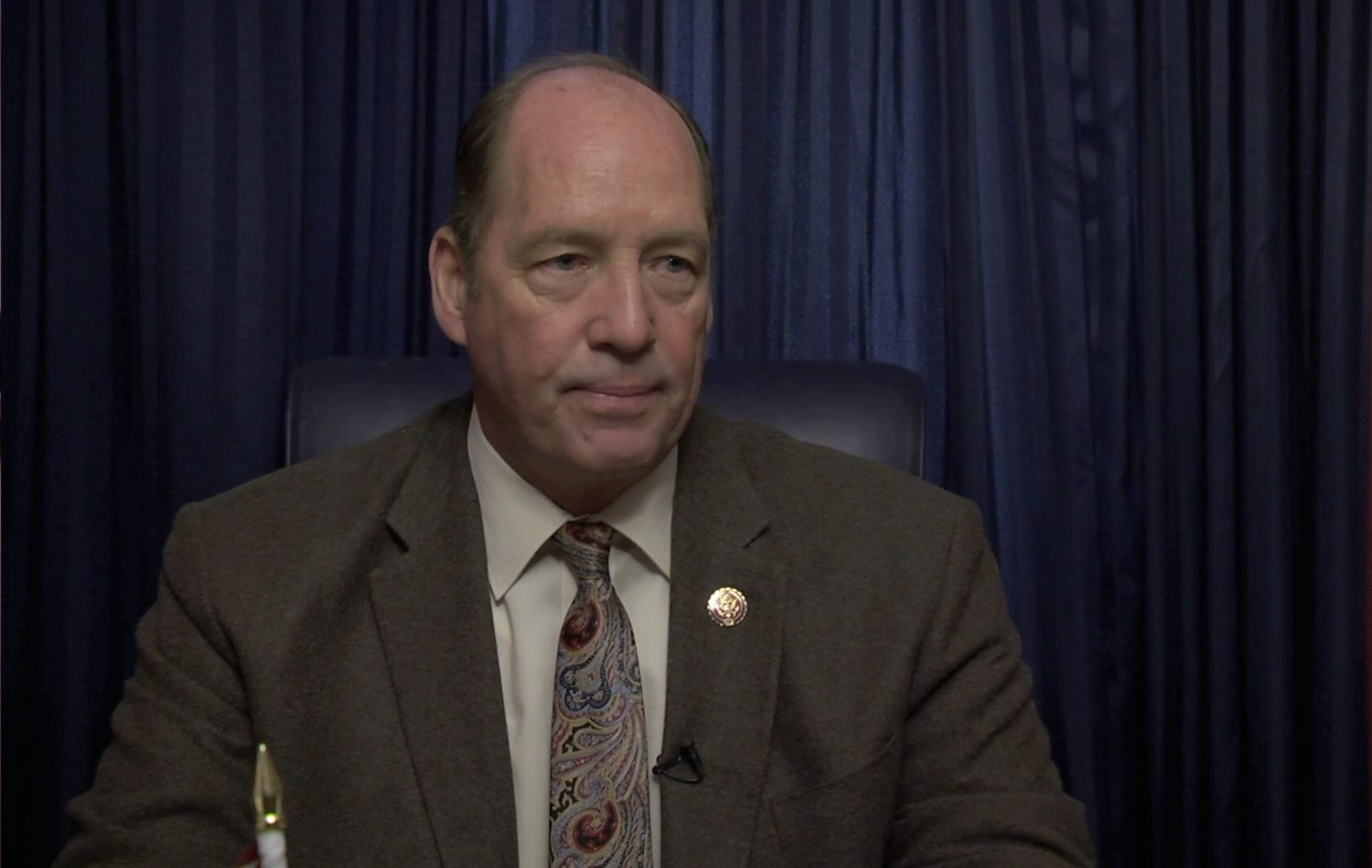Each new school shooting sets special interests on both sides of the gun-control debate into action.
By Daniella Mora and Henry Coburn
In a political system where campaign contributions are considered free speech, some voices carry more clout than others. On both sides of the political spectrum, special interest groups are investing large sums of money in politics in an attempt to sway legislature.
On the right, organizations like the National Rifle Association (NRA) and Gun Owners of America (GOA) lobby legislators both on state and national levels. One of the lawmakers backed by the NRA is U.S. Rep. Ted Yoho, who represents Florida’s 3rd Congressional District.
“I guess the NRA has been in here maybe one or two times,” Yoho told WUFT during an interview in his Washington D.C. office.
The NRA rates politicians based on their level of support for the Second Amendment. An A+ rating is the highest. Yoho has an A rating.
“I don’t keep up with any of that stuff,” he said. He said he does not care about his NRA rating.
Still, Yoho has accepted at least $5,000 in direct donations from the NRA throughout his four campaigns.
In recent elections, the NRA spent $18,500 in Florida. NRA lobbying efforts topped $5 million nationally for the 2018 election cycle. Outside spending exceeded $9.3 million.

Gun Owners of America also spends its money to influence politics.
“No one wants to see people be slaughtered or harmed in any way,” GOA spokesman Jordan Stein said. “And that’s so not what we want when we advocate for the Second Amendment. We advocate for safety.”
GOA’s spending on the 2018 election cycle was not as high as that of the NRA.

Anti-gun groups also spend on politicians. Gun control activist group Everytown for Gun Safety donated more than $100,000 to candidates during the 2018 election cycle.
“I’ll be honest with you, the NRA has little to no influence in Colorado,” said Colorado State Representative Patrick Neville. “The gun control crowd is very well funded to the multimillions in Colorado.”
The Federal Elections Commission, or FEC, sets limits on how much money can flow from special interest groups to candidates. Contributions are limited based on the level of office, but for a congressman, the limit is $2,700 for individual donors and $5,000 for Political Action Committees (PACs).

Still, special interest groups are seasoned in the art of campaign finance loopholes. U.S. Sen. Marco Rubio accepted $9,900 from the NRA in his 2016 re-election campaign.
While contributions to Rubio may seem to go beyond FEC limits to candidates, he received two donations of $4,950 — one before the primaries and one after he won the nomination and campaign finance limits reset.
But do tragedies like Columbine and Parkland change the gun lobby in any way?
Former Florida Gov. Rick Scott, a Republican, famously said “everything is on the table” after the Parkland shooting, and broke with the NRA when he signed The Marjory Stoneman Douglas School Safety Act.
The legislation changed gun policy in Florida by increasing resources for school safety like school resource officers and mental health services, and the age to buy a gun was increased from 18 to 21. It also created a path for arming teachers, a solution backed by many pro-gun activists.
The NRA did not release a grade for Scott or his opponent Bill Nelson during the 2018 Senate race.
Up next: Changes »
 Special Report from WUFT News
Special Report from WUFT News